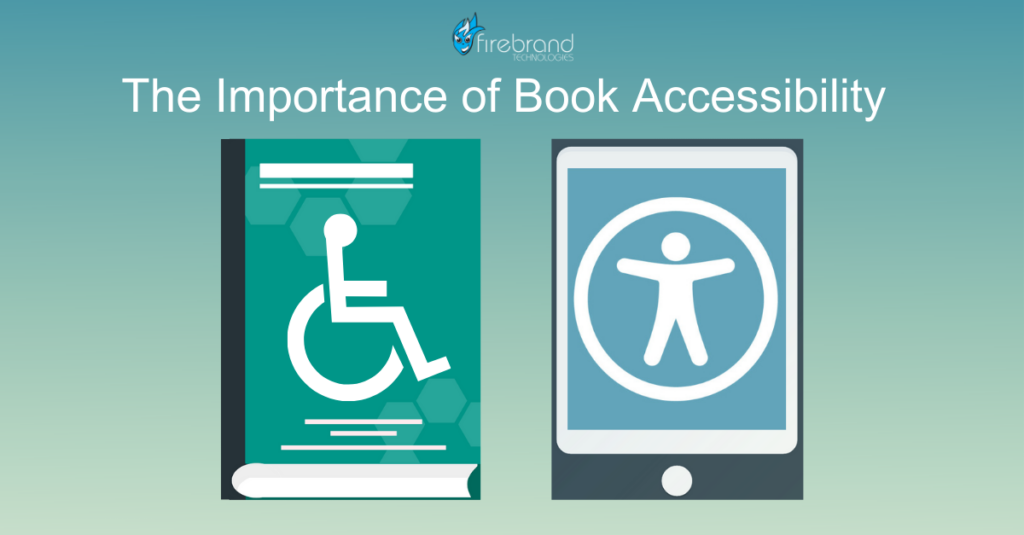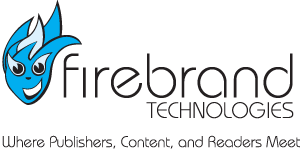
The Importance of Accessibility in Book Publishing
In the rapidly evolving landscape of modern publishing, the term “accessibility” has transcended its status as a mere buzzword to become a legal and fundamental necessity. In order to remain competitive in our modern digital marketplace, publishers need to ensure that their backlist and frontlist titles are fully inclusive and accessible to all types of readers.
What does accessibility in publishing mean?
Laura Brady, an Ebook accessibility expert, defines accessibility as “publishing thoughtfully so readers of all abilities and types have choice in how they read.”
What that means, really, is that publishers are paying more attention to how they produce content, including print, digital, and audio formats. According to the Accessible Books Consortium, an estimated 10-15% of people in the world currently have some degree of print impairment that affects their ability to read.
If publishers are not ensuring their books are accessible, they could be missing out on 15% of the global population!
Keep in mind, the legal requirements may also change in the upcoming years. The European Accessibility Act, which goes into full effect in June 2025, will introduce strict accessibility requirements for ebooks sold in the EU, even by non-EU companies. While the effect of this legislation on North American publishers remains to be seen in totality, Laura is certain it will ripple out and inevitably impact the entire publishing marketplace, particularly your backlist titles.
“The backlist is 100% affected,” Laura told us in the BookSmarts Podcast. “If your backlist isn’t accessible, you will not be able to sell it [in Europe].” Given that backlist titles account for an estimated 80% of a publisher’s sales, accessibility is not to be taken lightly.
What do my titles need to ensure they’re fully accessible?
Ultimately, you want to make it easy for people to buy your books, right? Here are some initial ideas for publishers to ease their way into making books accessible:
- Include image and chart descriptions in your ebooks, particularly of nonfiction content. You may also want to build the creation of that descriptive content into your initial author contracts going forward.
- Collaborate with a third-party auditor to evaluate your website (especially if you’re providing ecommerce) to ensure it does not prevent those with disabilities from interacting with your content, navigation, or checkout process.
- Collaborate with a third party to fund and produce a Braille edition of your titles.
- Create large print versions of your titles, with larger fonts and increased spacing, for senior readers or individuals with visual impairments.
- And, of course, update your backlist ebooks from EPUB 2 to EPUB 3.
We understand this sounds like a lot of work – and it is. As you may already know, Benetech is an incredibly helpful book accessibility resource for publishers. Founded in 1989, Benetech is a nonprofit publishing service that partners with schools and communities to support students with learning differences and disabilities. Their accessible library initiative, Bookshare, provides “the world’s largest library of ebooks for people that read differently” and currently includes over 20 million accessible ebooks.
Mary Alice Elcock is the Accessible Digital Content Specialist for Benetech/Bookshare and joined our monthly Firebrand Office Hours meeting in May to discuss how their company helps publishers and readers all around the world.
“The majority of our users are either sight impaired or have dyslexia,” says Mary Alice. Because of that, “we make various formats accessible but we also create our own platform that students [and adults] can use to read online.”
How it works: Publishers submit ebooks to Benetech and receive feedback about accessibility issues that need to be fixed. Once corrected, Benetech will continue reviewing your titles until they’re fully approved against accessibility standards, then they add your book to their growing library of accessible content. Benetech’s Global Content Approval (GCA) team also works directly with publishers to improve the accessibility of their EPUB files.
To learn more about Benetech and Bookshare, visit their website.
I’m ready to make my titles accessible, but how do I start?
Having your entire backlist and ebooks meet accessibility standards is not something that will happen overnight, and it can feel pretty overwhelming, especially at the beginning. The best way is to just start with baby steps and develop an initial plan.
Here are some resources to help you get started:
- The Accessible Publishing Learning Network (in collaboration with eBound Canada and the National Network for Equitable Library Services) provides helpful newsletters and resources, such as a checklist for eBook Accessibility, a Guide for Reviewing Image Descriptions, and articles to help you get started.
- The BISG Guide to Accessible Publishing provides a detailed “How to Create Accessible Content” section (along with much more), which includes 17 tips explained in clear, nontechnical language, along with coding samples for each.
- The DAISY Consortium website is full of webinars and tools to use for accessibility, such as ACE by Daisy. Their sister site, Inclusive Publishing, also has a resourceful newsletter you can subscribe to.
- Inclusive Publishing in Practice offers free courses and learning materials to put your accessibility knowledge into practice.
It’s important to remember that one department or employee at your publishing house should NOT be solely responsible for making your books accessible. Accessibility impacts everyone’s job at your company. We are all in this together!
If you have questions on book accessibility or would like training in the subject, please visit Laura Brady’s website, email laura@bradytypesetting.com, or follow her on LinkedIn or Twitter @LauraB7. Be sure to tune into the BookSmarts Podcast for Laura Brady’s full episode on Accessibility.
